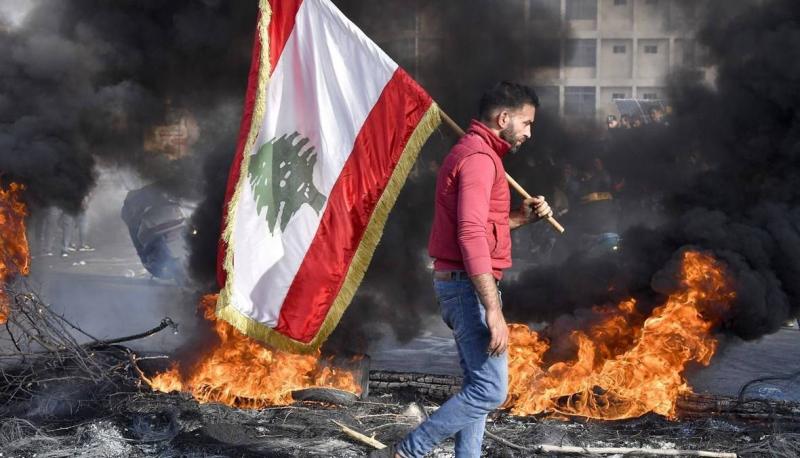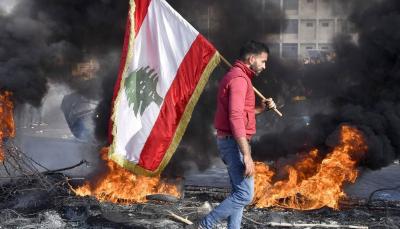The danger of the current phase Lebanon is undergoing lies in the absence of internal balances within the country, above all else. This is due to the complete Iranian domination over the nation through the overwhelming presence of "Hezbollah." This occurs at a time when there is no longer a significant Sunni or Christian weight, while the Druzes find themselves, as a minority, in a besieged position. The Druze party seems compelled to make all the concessions required to navigate through the current phase Lebanon and the region are experiencing, with the least possible damage and losses.
There is only one decision in the country, which is the Iranian decision, indifferent to what happens to Lebanon and the Lebanese people. What matters to the "Islamic Republic" is the protection of its regime, whether through a façade called Lebanon, Syria, Iraq, or Yemen. Nothing has changed in Iran since the first day of the success of the revolution against the Shah. The Iranian regime has been able to protect itself at all times by exporting its internal crises beyond its borders on one hand, while raising grandiose slogans on the other. Among these slogans are those related to Palestine and specifically the city of Jerusalem. What has Iran done for Jerusalem, which the U.S. recognized during Donald Trump's presidency as the capital of Israel?
Nothing has changed in Iran since the fall of the Shah and his regime in February 1979. The "Islamic Republic" has not stopped seeking to export the revolution in order to protect its regime. It resorted to all possible means to seize Iraq, based on the presence of a Shiite majority there. It failed in this endeavor throughout an eight-year war with Iraq, from 1980 to 1988. The war, which drained Iraq, Iran, and regional countries that found themselves forced to defend themselves, ended with Ayatollah Khomeini declaring acceptance of the cease-fire decision as "drinking a cup of poison." Khomeini accepted the United Nations Security Council's decision to end the war with Iraq after realizing that the regime he had established was under threat.
Iran did not succeed in exporting its revolution to Iraq except due to two factors: the first being U.S. policy, which is largely shortsighted, and the second being the political stupidity of Saddam Hussein, who committed the grave mistake of occupying Kuwait on August 2, 1990, just two years after achieving a near-victory over Iran. Saddam Hussein disastrously failed to understand the nature of the post-Iran-Iraq war situation and paid a heavy price for it. In reality, Iraq paid dearly for the political folly of a man who knew nothing about the region, its balances, or how to manage relations with major powers, including the United States.
When the United States presented a country called Iraq to Iran on a silver platter in 2003, it marked a new beginning for the Iranian revolution export project. Lebanon is currently, among those paying the price, for this new phase of the Iranian expansionist project, capped by the opening of the southern Lebanese front under the pretext of "supporting Gaza." Iran's transformation into a key player in the region would not have been possible without the American decision made by the Bush administration to invade Iraq without having a clear political plan for the post-occupation phase... unless handing Baghdad to the Iraqi sectarian militias loyal to the Iranian "Revolutionary Guard," which fought the Iraqi army for eight years, was itself an American goal!
In the post-fall phase of Baghdad to the "Revolutionary Guard" and its affiliated militias in Iraq, which are now known as "Popular Mobilization Forces," Iranian influence in Lebanon increased. The turning point was the assassination of Rafik Hariri on February 14, 2005, followed by the Syrian military and security withdrawal from the country, allowing "Hezbollah" to fill the vacuum left by this withdrawal. It achieved this through a series of additional assassinations and by instigating the summer 2006 war, which ended in a significant victory for the party over Lebanon and the Lebanese, but certainly not over Israel!
We are currently witnessing in Lebanon a culmination of a series of victories that Iran has achieved on the ground. The decision of peace and war in Lebanon is now in Iran's hands. This could not have been possible without the power vacuum best expressed by "Hezbollah" preventing the Parliament from electing a president. There is no president without Iranian approval, which means, among other things, that the president would be an employee of "Hezbollah."
Will the Lebanese situation remain as it is? A lot will undoubtedly depend on the outcome of the war with Israel, which "Hezbollah" started when it decided, the day after "The Flood of Al-Aqsa," to open the southern Lebanon front. What's frightening is that Iran, which was behind the party's decision to open the southern front, will not be able to impose constraints that limit Israeli brutality, which has practically erased the Gaza Strip from existence. Even more alarming is the Lebanese political vacuum that "Hezbollah" fills in the absence of a government that dares to say that "Hezbollah" has always refused to implement UN Security Council Resolution 1701, issued around this time in 2006. The government refuses to specify who is responsible for implementing the international resolution that was supposed to be a guarantee for maintaining the country instead of a bridge used to dismantle it... and lead it into the unknown.




